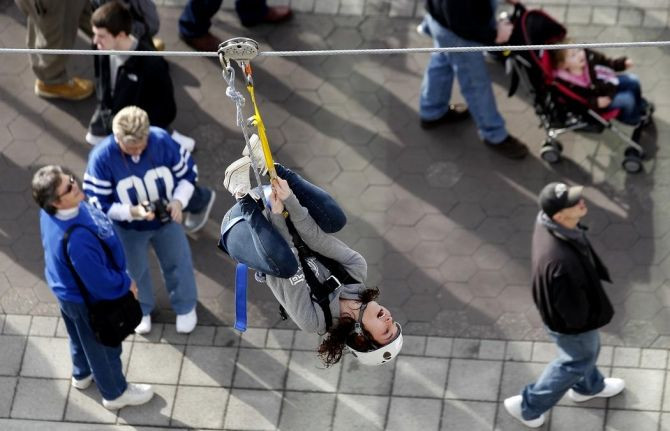Measles-Infected Fan Exposed Superbowl Attendees to Infectious Virus

A person who visited the Super Bowl village in downtown Indianapolis last Friday has been diagnosed with measles and may have exposed others who were there to the disease, according to Indiana health officials, who also confirmed a second case of the highly infectious virus.
Authorities have identified two possible cases of measles outside of Indianapolis and confirmed two measles cases, according the Indiana State Department of Health WISH-TV Indianapolis reported.
Of the two confirmed cases in Hamilton County, one of the patients had visited a free outdoor festival called Super Bowl village just two days before the New York Giants beat the New England Patriots, and more than 200,000 people had visited the same day.
However the patient did not go inside the Indiana Convention Center where more NFL-related activities had been taking place.
Indiana health authorities said that they have notified the U.S. Centers for Disease Control and health departments in New York and Massachusetts, but it could take several days before new cases of measles are identified from that exposure.
Measles is a highly contagious respiratory virus that spreads by contact with droplets from the nose, mouth, or throat of an infected person. Sneezing and coughing can also contaminate the air with contaminated droplets.
Measles symptoms usually begin 8 to 12 days after exposure and may include bloodshot eyes, cough, fever, sensitivity to light, muscle pain, eye irritation, runny nose, sore throat, and tiny white spots inside the mouth called Koplik’s spots. Symptoms progressively worsen and can eventually lead to a full body rash.
The state health agency said that the infected person contracted the virus though an undiagnosed sibling, and did not provide additional information about the person. The state’s health commissioner Dr. Gregory Larkin told WISH-TV that the patient was ill after leaving the Superbowl Village and went to see a doctor who made the patient take a blood test which confirmed the measles diagnosis.
Larkin said that it was good that the patient never went to the indoor Superbowl activities.
"When you're outdoors with the wind blowing and so forth, it's a less contagious atmosphere," he explained.
Larkin said that the risk for a widespread outbreak is low, and that school-age children have generally received rounds of measles vaccine.
Measles vaccine virtually eliminated the disease in the United States, but because some parents have decided not to vaccinate their children and could be a likely cause in the recent resurgence of measles.
In fact measles cases in the U.S. have increased, and in 2011 the country reported the highest number of cases in 15 years when 220 Americans were infected with the virus. The CDC reported that 87 percent of the people who contracted the disease were not vaccinated, and the other 13 percent were too young to get it.
About one or two out of 1,000 children with measles will die and worldwide there are 200,000 deaths annually from the disease, according to the CDC.
Published by Medicaldaily.com



























